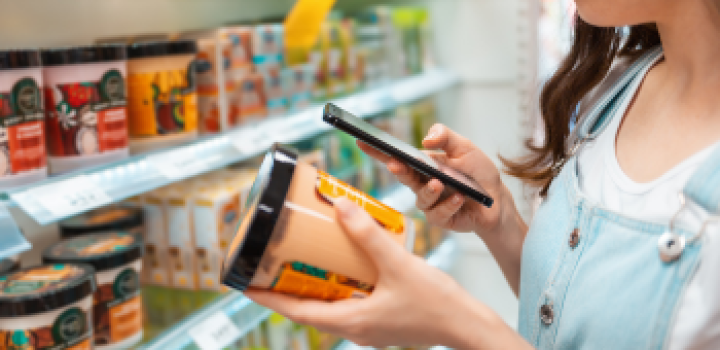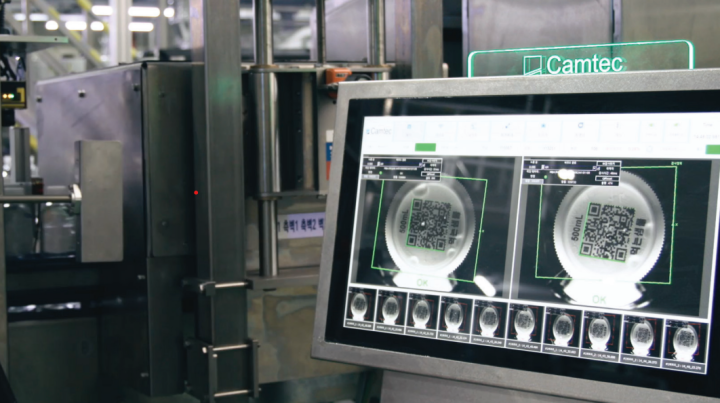As consumer values shift, the demand for transparency in product origins, production methods, recyclable packaging, and environmental impact has become a key driver of change. At the same time, governments around the world are responding with legislation that compels brands to provide detailed sustainability information, making sustainable solutions a top priority for many businesses.
Jeju Province Development Corporation (JPDC), the company behind Korea’s leading volcanic mineral water, Jeju SamDaSoo, exemplifies this shift with its innovative approach to environmental responsibility. JPDC’s decision to integrate QR codes powered by GS1 on bottle caps reflects a broader transformation, where sustainability is no longer an isolated initiative but an integrated, data-driven focus within core operations.
For JPDC, sustainability is more than a response to regulatory demands—it is a strategic imperative shaped by consumer expectations and trading partner requirements. This forward-thinking approach has positioned JPDC as a leader in the ongoing transformation of supply chains work offers a compelling case study for UK brands and retailers.
Rooted in sustainability
JPDC has championed eco-friendly practices since its inception in 1998. Drawing its pristine water from the UNESCO biosphere reserve of Mount Hallasan, the company has always maintained high standards of environmental stewardship.
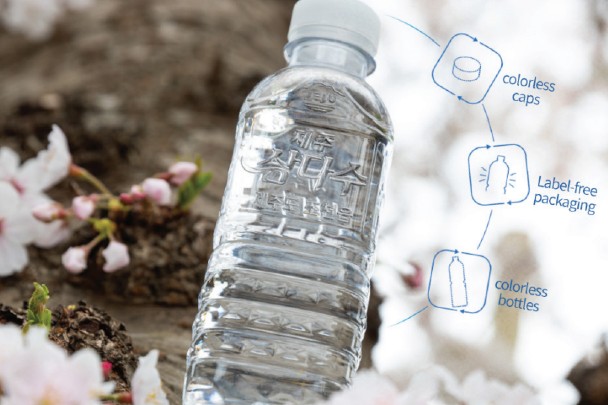
This ethos found new expression when the Korean Ministry of Environment introduced the "Use Less Plastic" initiative in December 2020.
Aiming to significantly reduce plastic consumption and enhance recycling efforts across Korea, a key component of the initiative was the mandate that, by 1 January 2026, all polyethylene terephthalate (PET) bottles for mineral water must be label-free.
JPDC’s response was swift. The business immediately made a commitment to eliminating labels from all PET bottles ahead of the deadline, a decision that was well-aligned with JPDC’s broader sustainability strategy.
Their “Green Whole Process” framework, unveiled in 2021, demonstrated their holistic approach to the circular economy. Anchored in the “5R” principles—Reduce, Recycle, Replace, Redesign, and Renovate—it aims to cut 64 tons of vinyl waste and 1,000 tons of plastic annually, setting a precedent for eco-conscious manufacturing.
Going label-less with QR codes powered by GS1
The challenge of transitioning to label-free bottles required a sophisticated solution that would allow JPDC to both connect with their consumers and maintain compliance with recycling regulations.
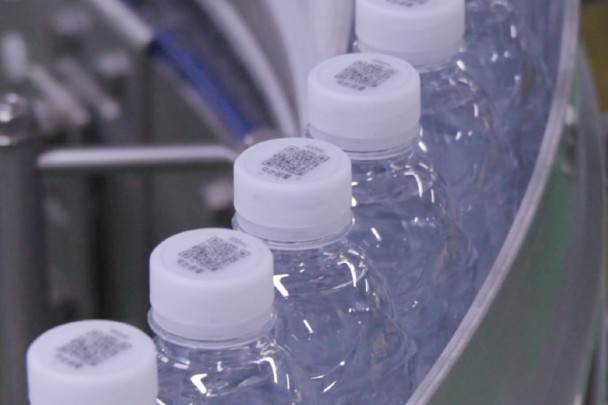
To achieve this, JPDC collaborated with GS1 Korea to adopt QR codes powered by GS1, allowing the business to transcend the limitations of traditional barcodes and accommodate essential product data such as the Global Trade Item Number (GTIN), batch information, expiry dates and more, without the need for physical labelling.
When scanned, the QR Codes instantly connect consumers to an interactive product information page, providing details on sourcing, quality, allergens, and promotional offers.
These same codes also serve operational purposes, enabling seamless inventory management, precise recall processes, and robust traceability—a vital aspect of JPDC commitment to sustainability and quality assurance.
Integrating innovation
This commitment extends to JPDC’s production line. Bottles are manufactured in-house to ensure the highest standards of hygiene and quality control. Rainwater, naturally filtered through Mount Hallasan’s volcanic rock for 18 years, is collected, minimally treated, and bottled. QR codes powered by GS1 are printed directly onto caps during production, with rigorous inspections to check accuracy and functionality.
The integration of QR codes into JPDC’s operations has revolutionised their supply chain. Retail customers benefit from enhanced stock management, while a “First-In-First-Out” inventory process in which the oldest inventory items are the first to be sold minimises waste.
Leading with impact
With a commanding 43% market share in Korea’s bottled water industry and cumulative revenues surpassing KRW 3.5 trillion (€2.3 billion) in 2023, JPDC’s influence is undeniable.
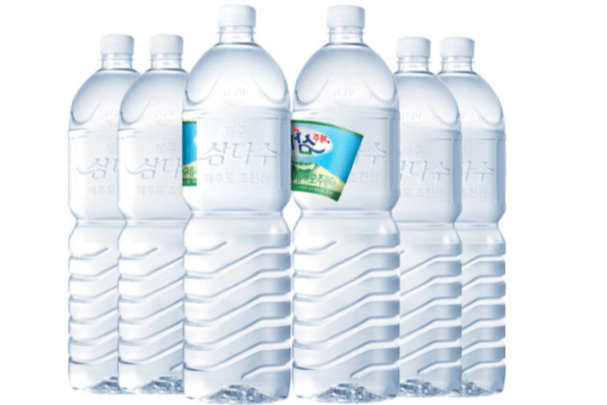
Their leadership extends beyond market dominance to setting benchmarks in environmental responsibility.
As the first Korean company to adopt label-free QR Code technology on a commercial scale, JPDC has earned numerous accolades, including the “Consumer-Centred Management” certification from the Korean government in 2022 and several international design and packaging awards.
The benefits of this innovation extend far beyond awards and recognition.
To date, JPDC has achieved:
Enhanced consumer engagement
By swapping physical labels for digital ones, JPDC established a direct line to their consumers, enabling campaigns such as the “Missing Children Search Campaign”. By scanning the QR codes powered by GS1 on bottle caps, users could access far more information and dynamic content than they ever could on-pack.
Regulatory compliance
The solution meets both the Korean government current mandates for recyclable plastic and beats the January 2026 deadline for label-less bottles, future-proofing JPDC’s packaging and operations.
Increased efficiency
Embedding expiry dates and batch information has optimised logistics, reduced waste and enhanced product traceability.
Despite these tangible successes, challenges remain. The precise printing of QR Codes on caps has occasionally encountered technical hurdles, particularly in retail checkout processes. However, JPDC is proactively collaborating with retailers to resolve these issues, underscoring their dedication to continuous improvement.
Lessons for the UK
JPDC’s journey offers valuable insights for British businesses navigating similar environmental and consumer trends.
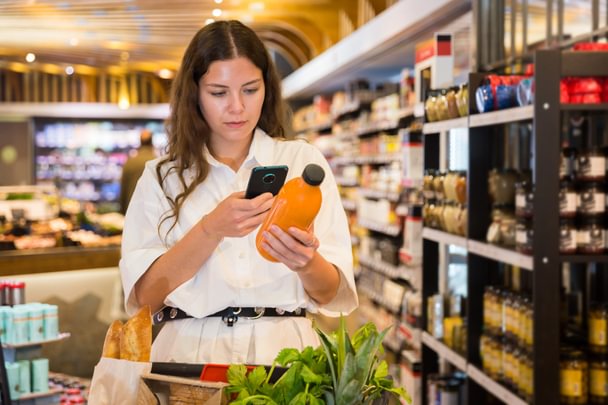
The adoption of QR codes powered by GS1 clearly demonstrated how digital innovation can simultaneously advance sustainability efforts and enrich customer experiences. By leveraging QR technology, UK brands can deliver greater transparency, more efficient supply chains and meet evolving consumer demands for eco-friendly products.
JPDC’s alignment with government regulations also highlights the importance of proactive engagement with policymakers. In an era where environmental standards are tightening globally, staying ahead and investing in technology can offer competitive advantages.
For UK brands and retailers, the message is clear: embracing bold, forward-thinking solutions is not just a moral imperative but a strategic necessity.

